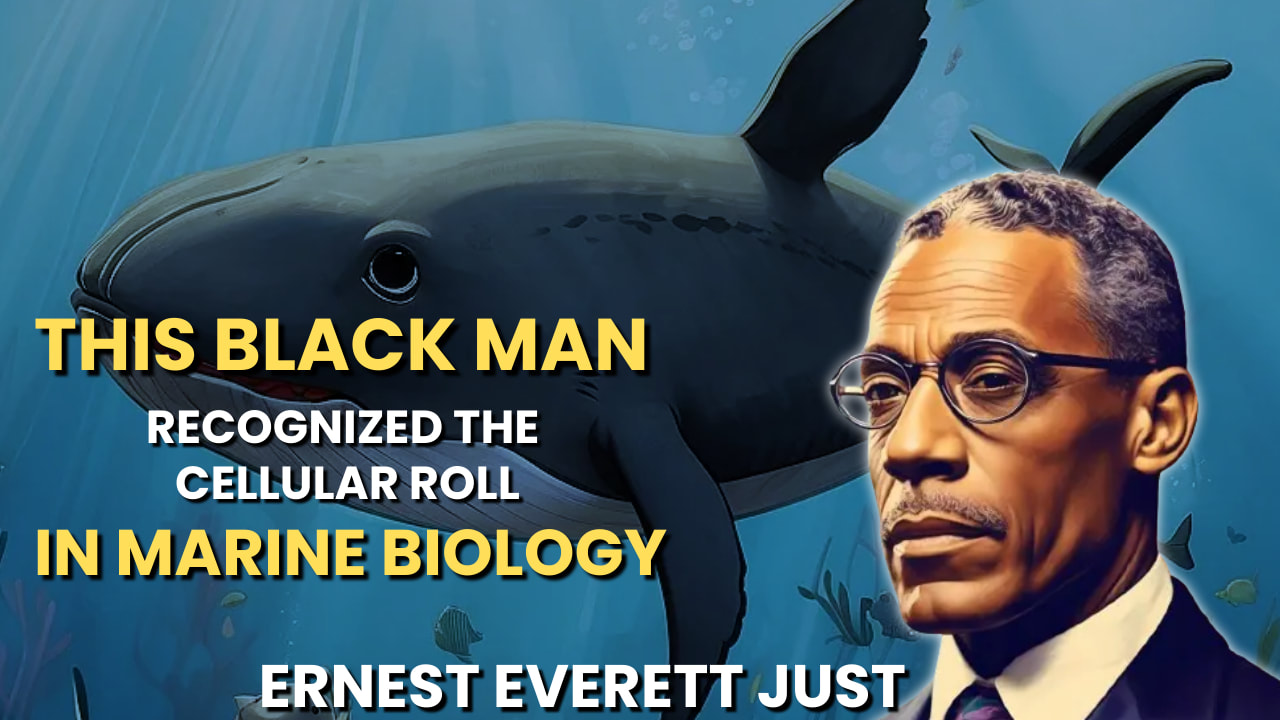|
In the annals of science, there are luminaries whose work transcends the boundaries of their time, leaving an indelible mark on our understanding of life itself. Among these pioneers stands Ernest Everett Just, a towering figure in biology whose relentless pursuit of knowledge illuminated the intricate tapestry of cellular life. Born on August 14, 1883, in Charleston, South Carolina, Ernest Everett Just emerged from the crucible of segregation in a racist society to become one of the most esteemed biologists of his era. From his early years, Just displayed an insatiable curiosity and an unwavering determination to unravel the mysteries of the natural world. Educated at institutions such as the Kimball Union Academy, and Dartmouth College, Just defied the odds stacked against African Americans in academia, demonstrating exceptional prowess in the sciences. His academic journey eventually led him to the halls of the University of Chicago where he became the first African-American to earn a Ph.D. from the institution. It was at the Marine Biological Laboratory at Woods Hole, Massachusetts, when Just's groundbreaking research flourished, laying the foundation for his seminal discoveries in developmental biology. Fueled by an unquenchable thirst for knowledge, Just delved deep into the intricate workings of marine organisms, meticulously observing their cellular processes with a keen eye. At the heart of Just's pioneering work lay his profound insight into the fundamental role of the cell surface in the development of organisms. Long before the advent of modern molecular biology, Just recognized the pivotal importance of cell membranes in orchestrating the complex dance of life. His meticulous studies revealed the crucial role of cell surface interactions in processes such as fertilization, embryogenesis, and cellular differentiation. In an era of racial prejudice and institutional barriers, Just's scientific achievements shone brightly as beacons of excellence. Despite facing systemic discrimination and limited resources, he persevered with unwavering determination, driven by an unyielding commitment to scientific truth. Beyond his groundbreaking research, Ernest Everett Just was also a gifted science writer and educator, dedicated to sharing his knowledge with future generations. Through his seminal works such as "The Biology of the Cell Surface" and "Basic Methods for Experiments on Eggs of Marine Animals," both published in 1939, Just sought to demystify the complexities of cellular biology and inspire the next generation of scientists. Ernest Everett Just passed away on October 27, 1941, leaving a rich legacy of scientific inquiry and intellectual courage. His pioneering research continues to reverberate across the halls of academia, inspiring scientists to unravel the mysteries of life at the cellular frontier. Today, as we reflect on the life and work of Ernest Everett Just, let us not only celebrate his scientific achievements but also recognize his enduring legacy as a champion of knowledge, diversity, and perseverance. In an age where the frontiers of science beckon us with tantalizing possibilities, let us heed the timeless wisdom of Ernest Everett Just, whose illuminating journey reminds us that the pursuit of truth knows no boundaries. To Dr. Earnest Everett Just, we proudly stand on your shoulders.
0 Comments
|
Details
Categories
All
Click Here to join our mailing list
|
Contact Us: |
Connect With Us |
Site powered by PIT Web Design


 RSS Feed
RSS Feed



